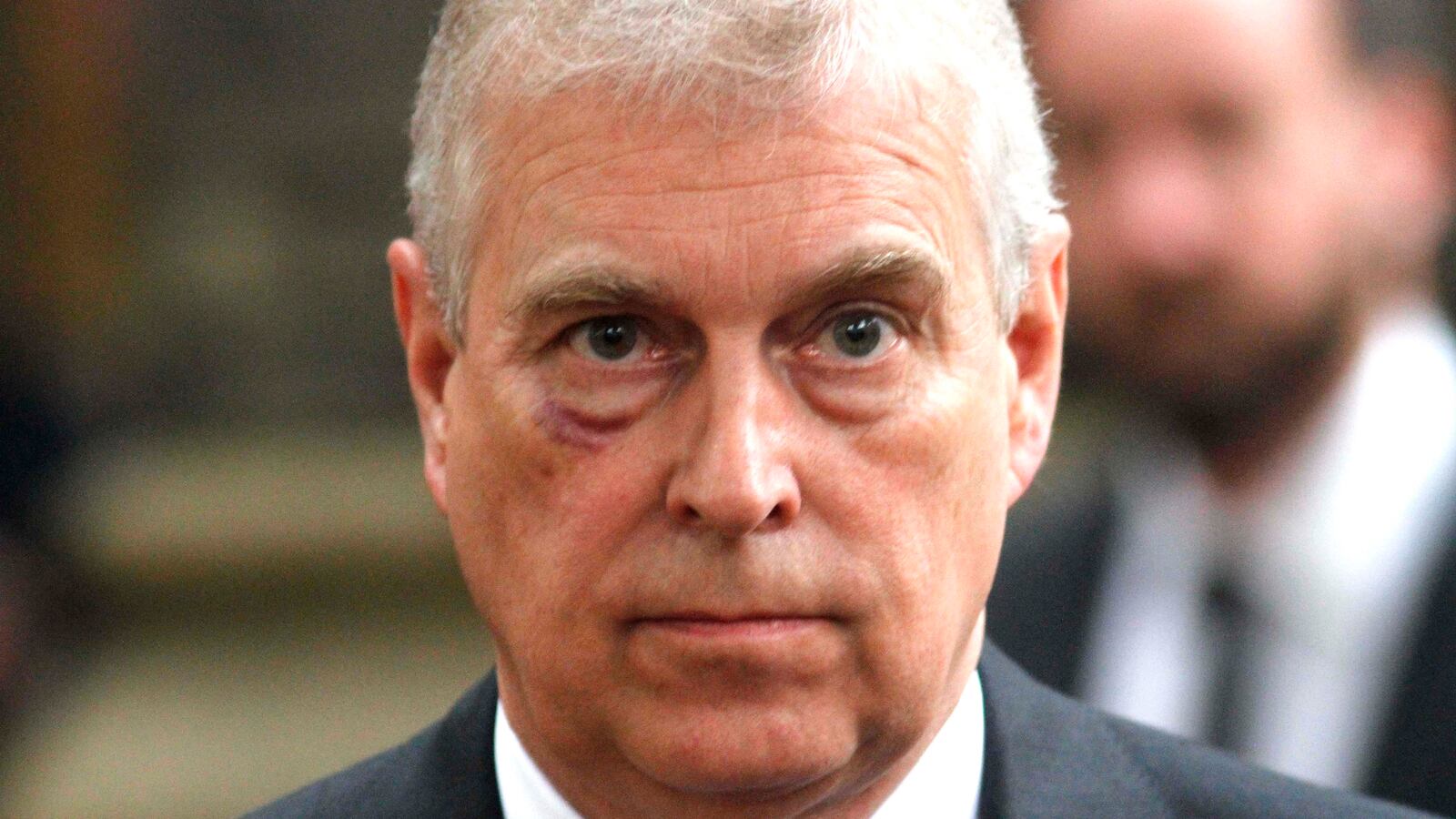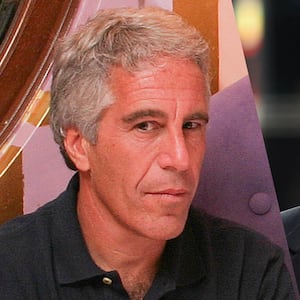Prince Andrew has failed in his last-ditch attempt to have a civil suit against him by Jeffrey Epstein victim Virginia Giuffre dismissed.
New York Judge Lewis A. Kaplan today refused to grant the royal’s motion to dismiss, meaning that Queen Elizabeth’s son now faces the prospect of a full trial later this year.
Andrew’s lawyers went to court Tuesday to argue that Giuffre’s suit—in which she is seeking unspecified damages, claiming that Andrew raped her three times when she was 17—should be thrown out.
The judge had said last Tuesday that he would rule on the motion to dismiss “pretty soon,” and today delivered his ruling.
Virginia Giuffre’s lawyer David Boies told The Daily Beast: “This is a very thoughtful and detailed opinion, and Ms. Giuffre is very pleased that Prince Andrew’s motion to avoid a trial has been denied. This means that evidence will now be taken on her claims. She will give evidence, Prince Andrew will give evidence. We are all pleased that there is now going to be a judicial determination on the merits of Virginia’s claim.”
It unequivocally confirmed the impression formed by most observers that the judge was unimpressed by the argument made by Andrew’s lawyer, Andrew B. Brettler, that claimed the prince was released from legal jeopardy under the terms of a $500,000 settlement Giuffre signed with Epstein in 2009, which was itself only unsealed last Monday.
That agreement said that Giuffre agreed to “forever discharge... any other person or entity who could have been included as a potential defendant” from future legal action. Brettler argued that Andrew was “unambiguously” included in the category of “Other potential defendants”; however Boies responded that the 2009 category was not relevant to Andrew because there was no allegation that Andrew was involved in the “transporting” of Giuffre. Rather, he said, “Prince Andrew fell into the category of people who were doing the trafficking. He was somebody to whom the girls were trafficked.”
However, the judge seemed much more interested in a section of the settlement that he said suggested its provisions could only be invoked by Epstein and Giuffre, or their agents, not by a third party such as Prince Andrew.
As The Daily Beast noted in its report of the hearing, the judge’s approach seemed to catch both sides by surprise, momentarily flummoxing the usually unflappable Boies, who later apologized for his “slowness” in understanding what the judge was driving at when he highlighted a section that specified Epstein and Giuffre agreed the terms of the settlement “were not intended to be used by any other person.”
A clearly stunned Brettler retorted, “It wouldn’t make sense for them to include language releasing other potential defendants if those other potential defendants didn’t have a right to use that contract as an affirmative defense.”
The judge however told Brettler that this argument ran “smack into paragraph four, which says this has all got to be secret. They are not going to give anybody a copy of this agreement and the terms can’t be disclosed.”
The case will now proceed to discovery and depositions with a full trial likely to happen later this year.
However Andrew may now conclude he has little left to lose by simply not participating any further in the trial and allowing the court to register a default judgment against him, the terms of which would likely be very hard to enforce.







